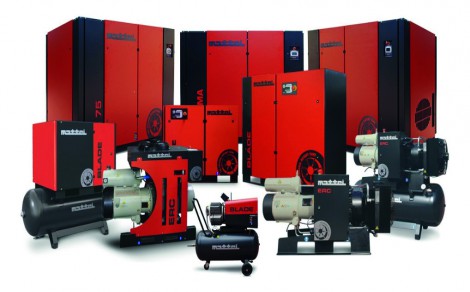Mythbusters – The truth about vane compressors

When it comes to choosing a compressor, it generally boils down to two options – vane or screw. When assessing the benefits of each, it’s important to drill down to the quantitative facts, and avoid misinformation, in order to reach the right decision. Andy Jones, managing director at Mattei, dispels the myths around vane technology.
One of the greatest difficulties when it comes to product selection, whether that be car, boiler, air compressor or otherwise, is sorting fact from fiction. Many will tout the benefits of their system whilst emphasising the drawbacks of another – all of which is understandable, but for buyers, it’s vital to understand where the truth lies.
Pressure
Arguably one of the first concerns when considering a compressor purchase is to ensure the unit can operate to the right pressure.
In terms of screw versus vane technology, there is little difference in the pressure which these compressors can reach. Contrary to one of the biggest vane ‘myths’, many units featuring this technology can deliver pressures up to 13bar, not just 10bar.
‘Oil-free’ compressors
A related concern is oil-free air. In recent years, there has been a growing demand for ‘oil-free’ and ‘class 0 (zero)’ compressors, to produce ‘oil-free’ compressed air. However, many people do not realise that the air produced by these is not totally oil-free, and that specifying ‘class zero’ units will not improve their environmental credentials.
In reality, ‘class 0’ simply has to have less contamination in a cubic metre of air than class 1 does, however this level still needs to be defined between the user and the supplier of the equipment, otherwise ‘class 0’ is meaningless. And, given that critical applications, such as breathing, medical and food, require purity class 1 for oil, very few environments actually require ‘oil-free’ compressed air.
It’s also worth noting that oil-free air can still be delivered through an oil-lubricated compressor, providing there is an adequate level of filtration. Today filtration capabilities are actually at an all-time high, with modern oil removing devices reaching exceptional levels of performance. To put this into context, they are capable of making compressed air 400 times cleaner than the air we breathe.
Lifespan
Another common myth lies with the difference in maintenance frequency and cost between vane and screw compressors. As vane units tend to have a longer life-span it can sometimes be incorrectly assumed that the maintenance costs are consequently higher.
In fact, vane compressors are much more easily maintained than screw options and can generally go for longer periods without major maintenance works.
This is largely due to the absence of roller bearings in vane compressors. This means lower maintenance costs and a reduced risk of component failure – some vane compressors have been known to run for over 200,000 hours without the need to replace the white-metal bushes used in this type of compressor. This poses a serious contrast with roller bearings, which are typically required to be changed out at every 40,000-50,000 hours.
-
SMART Manufacturing & Engineering Week
04 - 05 June, 2025
NEC, Birmingham UK -
PPMA 2025
23 September, 2025, 9:30 - 25 September, 2025, 16:00
NEC, Birmingham UK -
Advanced Engineering Show 2025
29 October, 2025, 9:00 - 30 October, 2025, 16:00
NEC, Birmingham UK










